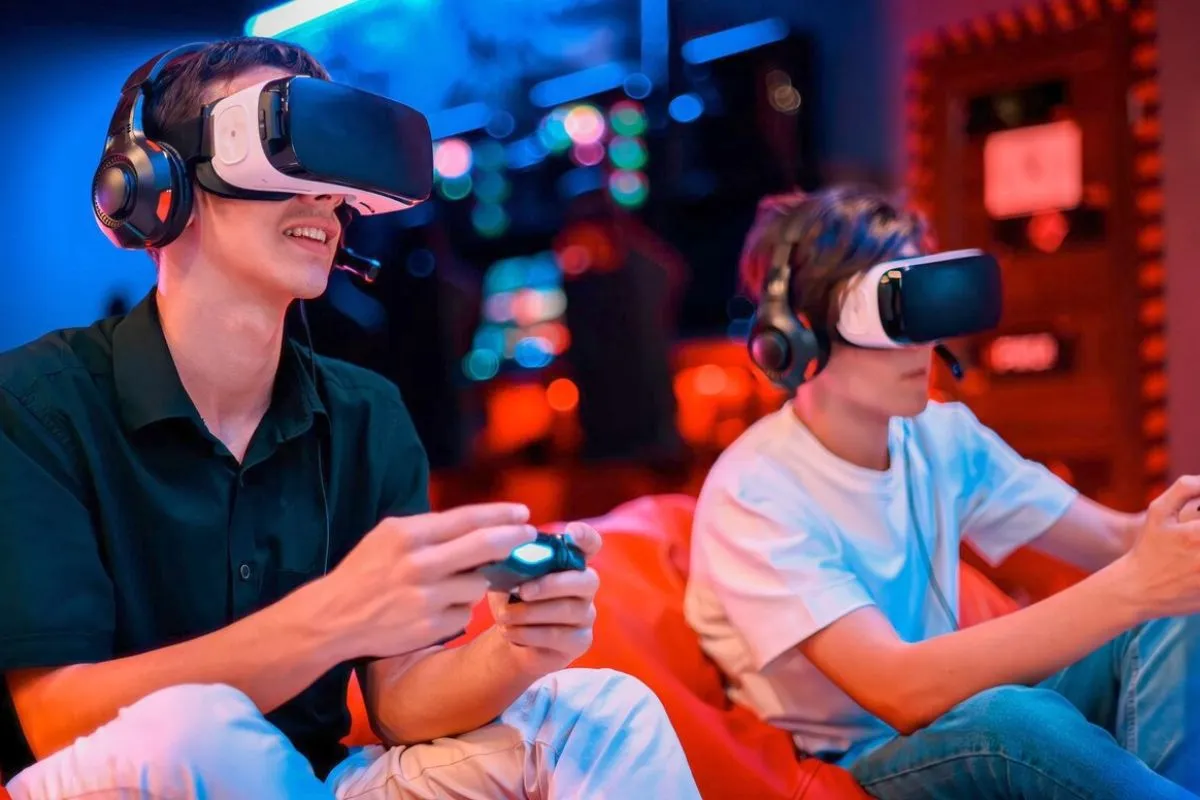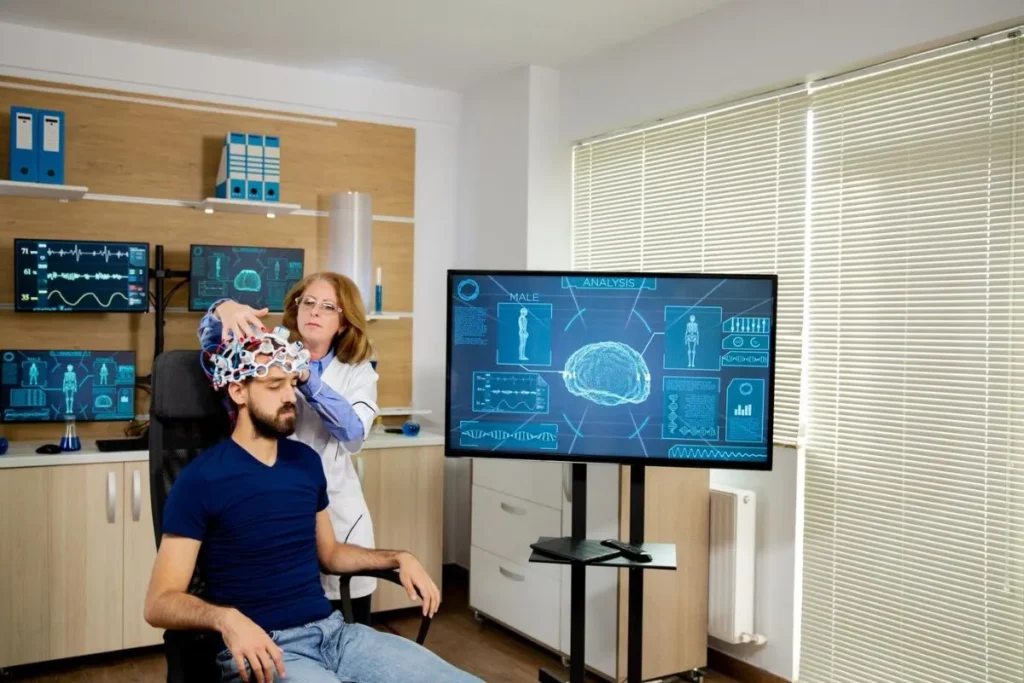Neurotechnology in Esports is revolutionizing the industry by enhancing player performance and engagement. This innovative approach offers unprecedented opportunities for improvement.
As Esports gains popularity, the demand for advanced training tools grows. Neurotechnology is at the forefront of this transformation.
This article explores how neurotechnology boosts performance, its impact on players, and the strategies involved in training with this innovative technology.
The Role of Neurotechnology in Esports
Neurotechnology in Esports focuses on using technology to understand and enhance the brain’s functionality. It encompasses tools like neurofeedback, brain-computer interfaces, and cognitive training.
These tools help players monitor their brain activity, providing insights into their cognitive states. The goal is to optimize performance through targeted brain training exercises.
Leading Esports teams are integrating neurotechnology into their regular training regimens. This adoption underscores the importance of mental acuity in competitive gaming.
Enhancing Performance through Neurotechnology
The primary benefit of neurotechnology in Esports is performance enhancement. By understanding cognitive functions, players can identify strengths and weaknesses.
Neurofeedback allows gamers to receive real-time information about their brain activity. They can adjust their focus and concentration during critical moments in the game.
Brain-computer interfaces (BCIs) enable direct communication between the brain and external devices. This innovation offers precision and speed in executing complex in-game strategies.
Neurofeedback Training
Neurofeedback is a powerful tool for improving focus. Players wear sensors that monitor brainwave patterns. When they deviate from optimal states, visual or auditory cues prompt adjustments.
This training helps players maintain peak performance under pressure. It reduces response times, enhances decision-making abilities, and fosters sustained attention.
- Real-time brain activity monitoring
- Adjustments for optimal cognitive states
- Reduced response times
- Enhanced decision-making
- Sustained attention
Brain-Computer Interfaces
BCIs offer a direct link between the brain and game controls. This technology translates neural signals into commands, allowing for seamless interaction.
In competitive gaming, speed and accuracy are crucial. BCIs give players an edge by minimizing the delay between thought and action.
High-level Esports teams use BCIs for training and competition. The precision gained through this technology can be the difference between victory and defeat.
Cognitive Training for Esports
Cognitive training hones essential skills like memory, attention, and problem-solving. Neurotechnology tools tailor exercises to target these areas.
Players engage in exercises designed to challenge their cognitive limits. Over time, these sessions lead to noticeable improvements in-game performance.
Virtual reality (VR) environments are often used for cognitive training. These immersive setups simulate real-game scenarios, providing a practical and engaging form of practice.
Memory Enhancement
Memory is vital for recalling strategies and opponents’ tendencies. Neurotechnology helps improve both working and long-term memory through targeted exercises.
These exercises can include tasks like sequencing, pattern recognition, and information retention drills. Over time, they lead to significant improvements in recall capabilities.
- Sequencing tasks
- Pattern recognition
- Information retention drills
Attention and Focus
The ability to maintain focus in high-pressure situations is crucial in Esports. Neurotechnology offers targeted training to enhance this skill.
Attention training often involves exercises that require sustained mental effort. Gamers learn to filter distractions and maintain concentration over prolonged periods.
Improved focus directly translates to better in-game decision-making and execution.
Innovative Strategies in Esports Training
Integrating neurotechnology into training requires strategic planning. Coaches and analysts design programs that address the specific needs of each player.
This customization ensures that training is both effective and efficient. Neurotechnology tools provide data that helps in creating tailored training regimens.
Continuous monitoring and adjustments are essential for maximizing the benefits of this technology. Feedback loops help refine training strategies over time.
Data-Driven Training Programs
Data from neurotechnology devices offers deep insights into player performance. Coaches use this data to identify areas for improvement and develop targeted interventions.
This analytical approach leads to more efficient training programs. Players benefit from personalized exercises that address their unique cognitive profiles.
Tracking progress over time allows for iterative improvements. Consistent monitoring ensures that players remain on an upward trajectory.
Customization and Personalization
Each player has different strengths and weaknesses. Neurotechnology allows for highly personalized training plans.
By analyzing brain activity patterns, coaches can design exercises that target specific cognitive areas. This personalized approach leads to faster and more effective improvements.
- Targeted cognitive exercises
- Personalized feedback
- Optimized training regimens
Continuous Monitoring and Adaptation
Regular monitoring of brain activity is crucial for adapting training strategies. Neurotechnology tools provide real-time feedback, enabling ongoing adjustments.
This continuous improvement framework ensures that training remains relevant and effective. Players are more likely to reach their peak performance levels.
Adaptive training programs are flexible and responsive, accommodating the evolving needs of players over time.
Psychological Benefits of Neurotechnology
In addition to cognitive gains, neurotechnology also offers psychological benefits. It helps reduce anxiety and improves mental resilience.
This holistic approach ensures that players are mentally and emotionally prepared for competition. Mental well-being is critical for sustained performance.
Neurotechnology tools are now pivotal in helping players balance performance and mental health, ensuring holistic development.
Case Studies and Real-World Examples
Several Esports teams have successfully integrated neurotechnology into their training. These case studies highlight the practical benefits.
For example, Team Liquid has seen significant performance improvements through neurofeedback and cognitive training.
These real-world examples provide valuable insights into how neurotechnology can be effectively applied in professional Esports.
Team Liquid’s Neurotechnology Journey
Team Liquid began exploring neurotechnology to enhance their players’ cognitive skills. They integrated neurofeedback and cognitive training into their routines.
The results were impressive: players showed faster reaction times and improved decision-making. Their overall performance in tournaments saw remarkable gains.
This case study underscores the potential of neurotechnology in driving competitive success.
Benefits Observed
Team Liquid observed several key benefits from their neurotechnology initiatives. These included:
- Faster reaction times
- Improved decision-making
- Enhanced focus and concentration
These benefits contributed to their success in various Esports tournaments, solidifying their position as a top team.
Integration Process
Integrating neurotechnology required careful planning and execution. Team Liquid worked with experts to create customized training programs.
They utilized data from neurofeedback sessions to continuously refine their strategies. This iterative approach ensured maximum benefits.
Key aspects included regular monitoring, feedback loops, and adaptive training exercises.
The Future of Neurotechnology in Esports
Neurotechnology is poised to become a staple in Esports training. As technology advances, its capabilities will expand, offering even more benefits.
Future innovations may include more sophisticated BCIs and advanced cognitive training tools. These developments will further enhance performance and engagement.
The integration of neurotechnology promises to elevate Esports to new heights, making it an indispensable part of the industry’s future.
Future Prospects and Considerations
While the benefits are clear, there are also considerations to keep in mind. Ethical issues and access to technology are critical factors.
Ensuring fair play and equal opportunities for all players is essential. Guidelines and regulations will need to evolve alongside technological advancements.
Balancing innovation with ethical practices will be key to sustainable growth in the Esports industry.
Neurotechnology: The Game Changer
Neurotechnology in Esports is transforming the industry through cognitive and psychological advancements. Major teams are leveraging these tools for significant competitive gains.
Continued innovation and ethical considerations will keep neurotechnology at the forefront. It’s an exciting time for the Esports community.
For players and teams ready to elevate their game, integrating neurotechnology could be the key to unlocking next-level performance.
Engage with Us
Stay updated on the latest advances in neurotechnology in Esports. Connect with our community and share your experiences.
Join us in exploring how this technology can further revolutionize competitive gaming.
Frequently Asked Questions
What is neurotechnology in Esports?
Neurotechnology in Esports involves using tools like neurofeedback and BCIs to enhance cognitive functions and improve player performance.
How does neurofeedback help Esports players?
Neurofeedback helps players monitor and adjust their brain activity in real-time, improving focus, decision-making, and reaction times.
Are there any ethical concerns with neurotechnology in Esports?
Yes, ensuring fair play and equal access to technology is essential. Ethical guidelines will need to evolve with advancements.
What are the psychological benefits of neurotechnology in Esports?
It helps reduce anxiety, improves mental resilience, and ensures players are mentally prepared for competition, enhancing overall well-being.
How do BCIs enhance performance in Esports?
BCIs offer direct communication between the brain and game controls, reducing reaction times and increasing precision in executing strategies.




